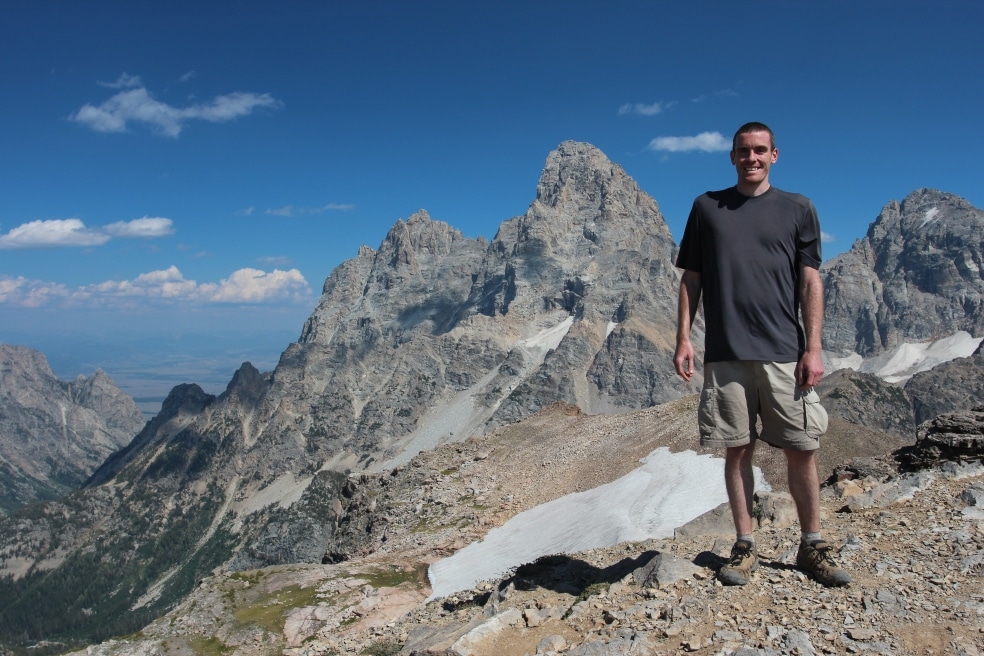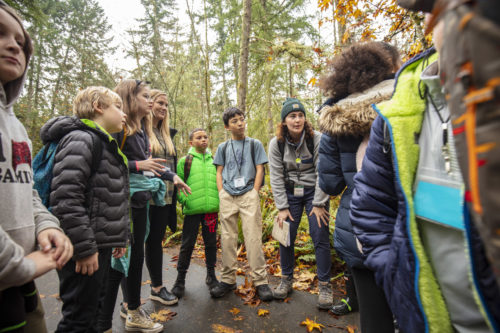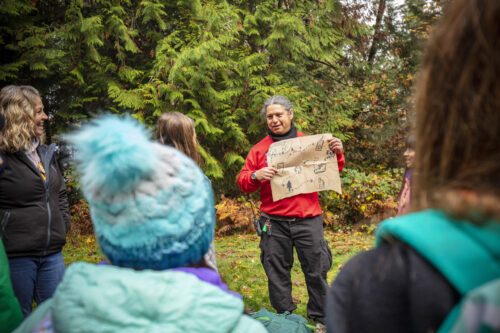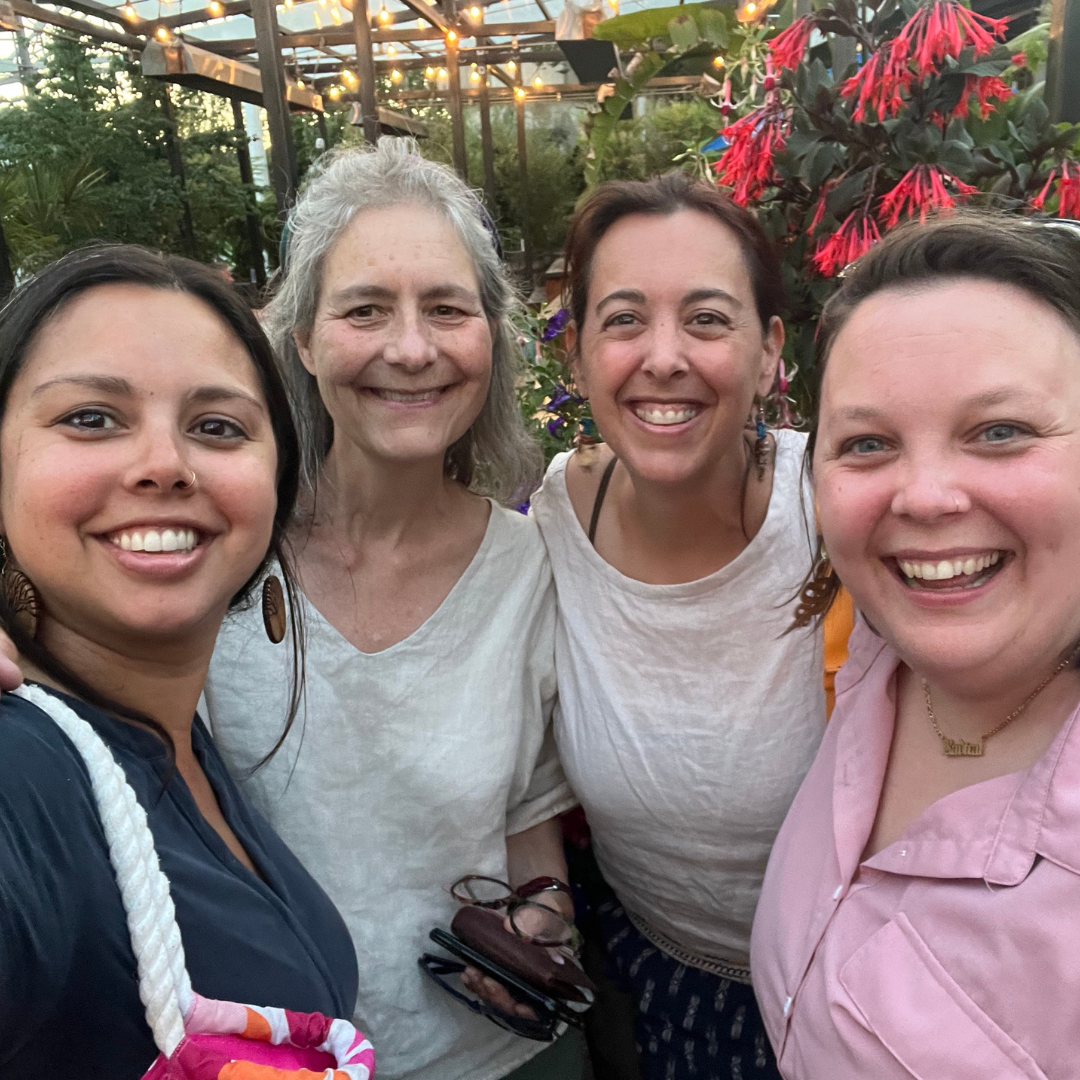As the COVID-19 crisis continues, it’s become increasingly clear that the entire field of environmental…
Author: Tamar Kupiec
Joe Petrick was a member of IslandWood’s first Education for Environment and Community graduate program cohort. In a video in the IslandWood archives, we can see him as a young teacher leading a group of children down a trail, calling on them to be alert to the creatures of the forest. Later we see him at Bailey Gatzert Elementary School in West Seattle, a participant in the School Overnight Program (SOP), crouching down to meet the students eye to eye and listening as they proudly describe their new community garden.
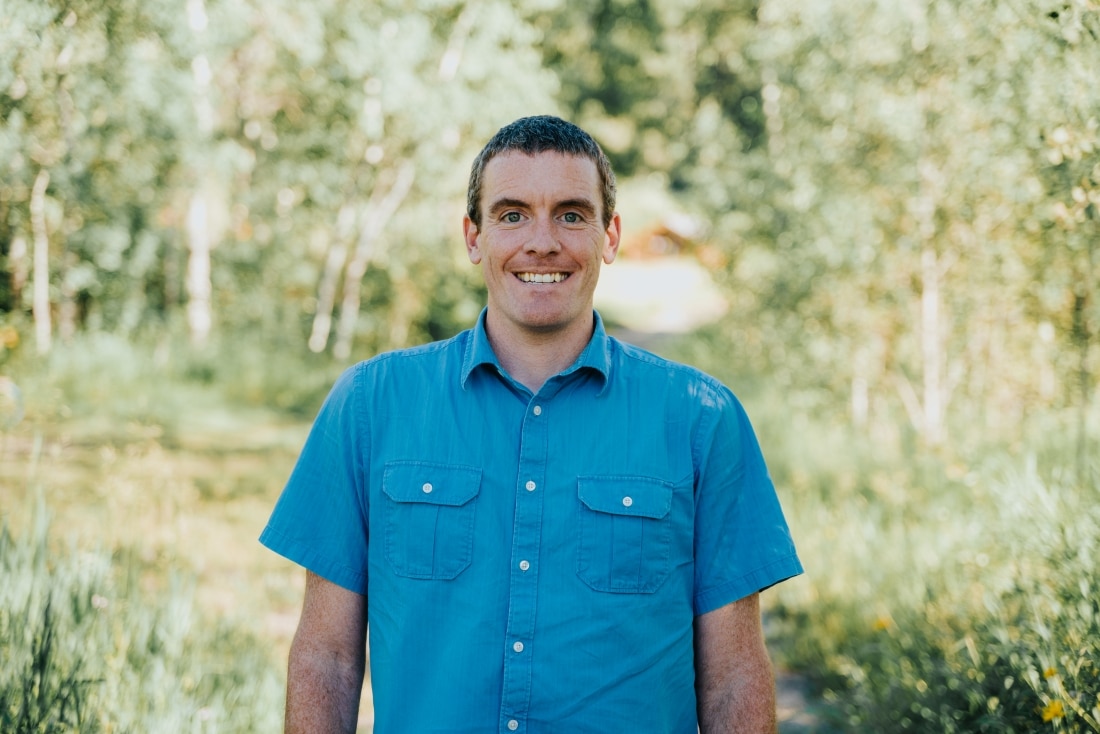
Alum Joe Petrick, as a student in the IslandWood Graduate Program.
The garden grew from their experience at IslandWood and the community assessments they conducted with Joe before and after. What did they love about their neighborhood? he asked them. What did they want to change? Joe used this conversation to customize their SOP curriculum and to help them carry out their project afterwards.
“I remember them like it was yesterday,” he says. Today, as Vice President of Field Education at the Teton Sciences Schools (TSS), Joe oversees its wildlife expeditions; school overnight, family, and adult programs; an AmeriCorps initiative; and summer camps, all taking place on three campuses. His goal then and now is not to provide a one-off experience, be it on Bainbridge Island or in the Grand Tetons, but rather, to equip and motivate participants to make positive change in their communities.
Today, however, his students are not fifth-grade gardeners. Nor are they high school students studying alpine ecology, as they might have been 11 years ago when he started at TSS. He no longer writes curriculum, teaches, or manages day-to-day operations. Instead he supervises the people who do this work. “I see my job as mentoring, developing, inspiring educational leaders,” he says.
Preparing culturally responsive educators and creating a more equitable and inclusive field is the work that most inspires him now. He takes it on with seriousness and humility. Every decision, he says, whether it concerns budgets or curricula, must abide by it—change will not happen by accident.
His professional satisfaction is as deep and layered as the work of TSS. He embraces the creative challenge of rebuilding and strengthening programs such as the wildlife expeditions, which take visitors through this land of mountains and meadow, moose and elk, or the AmeriCorps program, whose members work with local nonprofits to increase their capacity to teach scientific literacy. He finds pleasure in coaching the program directors, seeing their success and its impact on participants. And he is encouraged by the graduate students, AmeriCorps members, guides, and field instructors who deliver these programs and ultimately take the expertise and vision acquired at TSS into communities across the country. The “multiplier effect,” Joe says, with peak satisfaction.
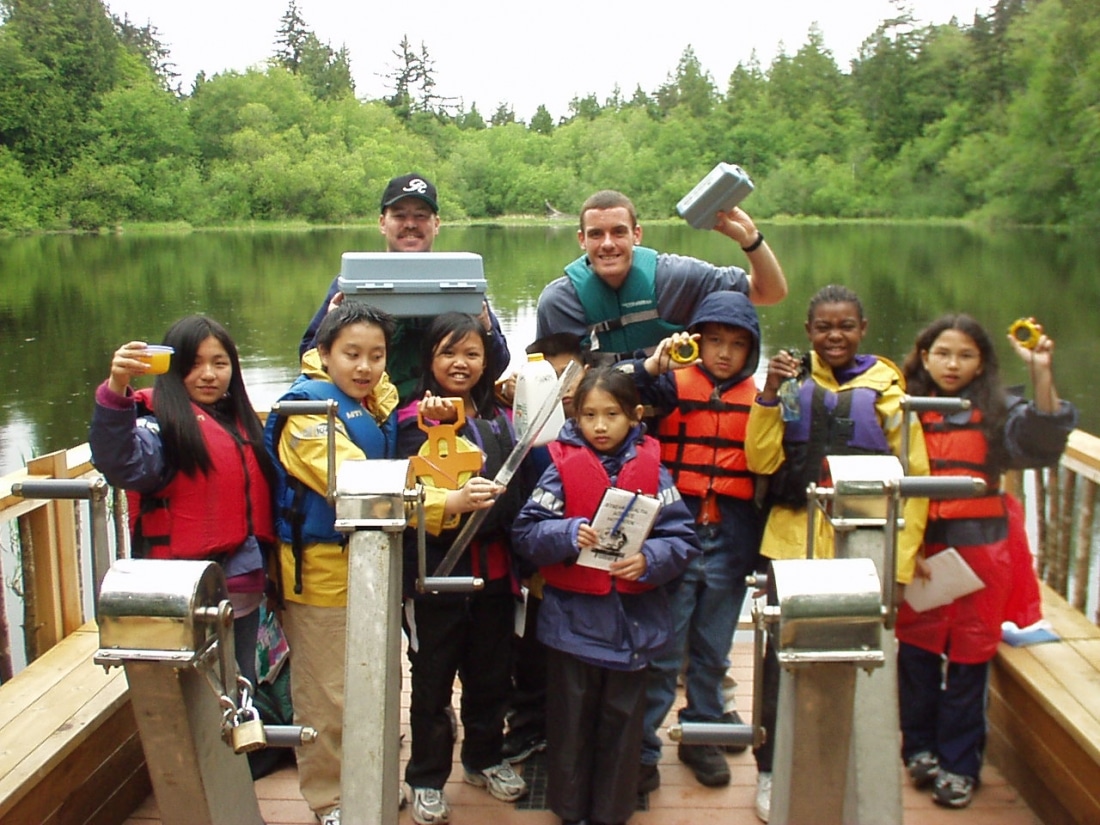
Joe Petrick leading a group of School Overnight Program students on the Floating Classroom on Mac’s Pond.
“I am the multiplier effect of [IslandWood],” he continues. Joe came to our graduate program as a classroom teacher with little science experience. Sixteen years later, he is the vice president of a national organization that works with 15,000 students every year to cultivate scientific literacy in combination with leadership in community and connection to place.
In this role he regularly draws on educational methods tested and internalized during his time at IslandWood. In SOP he strove to create community within his field groups so that all members could feel comfortable and confident to learn and lead. He did so by practicing a philosophy of constructionist education, pulling learning from students, rather than teaching to them, and by engaging them in acts of stewardship, such as trail maintenance.
Listen to Joe in that video taken 16 years ago: “My fondest hope is to make connections with a lot of students and to inspire them to go back to their schools and to spread that, to get that fire lit inside people so that they can really make a difference.” He could have just as easily said the same thing today.
Joe attended IslandWood as part of the inaugural Education for Environment and Community (EEC) Graduate Program cohort in 2002-03.
Please note that this post was last updated on 10/15/2018. Some details, including job title or place of employment, may have changed since then.

